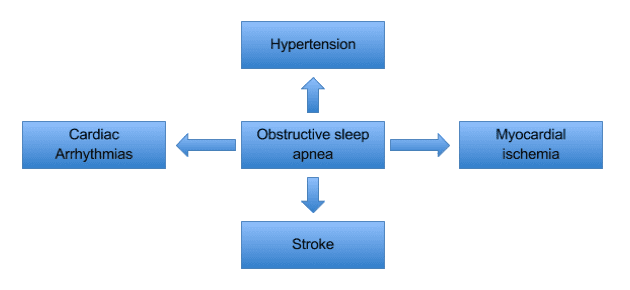The Sleep Apnea / Cardiovascular Connection
Sleep apnea is extremely common in patients with cardiovascular disease. It is well known that when sleep apnea is left untreated, medical comorbidities are likely including; cardiovascular complications such as hypertension, heart attack, stroke, A-Fib, and endothelial dysfunction. Understanding the relationship between these two serious maladies and how to impact the ongoing negative cycle by treating OSA can help your patients improve their cardiovascular health.
Blood Pressure During Sleep
Sleep should be a time when the body regenerates, and recovers from the stress of waking hours. In normal sleep and breathing, blood pressure and heart rate remain below waking levels on average. For individuals without sleep apnea, sleep and normal breathing has a relaxing effect on the cardiovascular system. However for sleep apnea sufferers, disrupted breathing has a negative effect on the cardiovascular system that may result in an increase in blood pressure, cardiac dysrhythmias, endothelial dysfunction and more. The mechanisms triggered by sleep-disordered breathing can carry over into waking hours.
Sleep Apnea and Hypertension
Intermittent desaturations at night are associated with release of stress hormones (catecholamines) that cause vasoconstriction and elevated blood pressure. Studies have shown that this elevation in catecholamine then persists during the daytime resulting in systemic hypertension.
Patients with sleep apnea are also at risk for cardiac rhythm disturbances especially ventricular arrhythmias and atrial fibrillation as well as myocardial ischemia.

It is estimated that 80% of Americans with sleep apnea are undiagnosed. Sleep apnea affects more than 20 million unaware Americans. This is why we urge health care practitioners such as yourself to keep sleep health at the forefront during patient interaction. Treating sleep apnea in individuals who also have cardiovascular issues has been proven to improve co-morbidities like hypertension and arrhythmia.
Start with Sleep Health
When assessing your patients, it is useful to inquire about quality of sleep, presence of snoring, observed apneas, awakening from sleep gasping and daytime hypersomnolence. Urge your patients to get a sleep test when appropriate, and begin managing sleep apnea if indicated.
Please use our website as a resource, both for yourself, and for your patients. We have many blog articles to help understand sleep apnea, treatment options, the effects of sleep deprivation, sleep study information, and more. Our goal is to help your patients get treated if they suffer from sleep apnea, and improve their quality of life starting with improving sleep health.
This blog was co-written by Dr. Rogers, DMD, DABDSM, and Dr. Bijwadia, MD.

